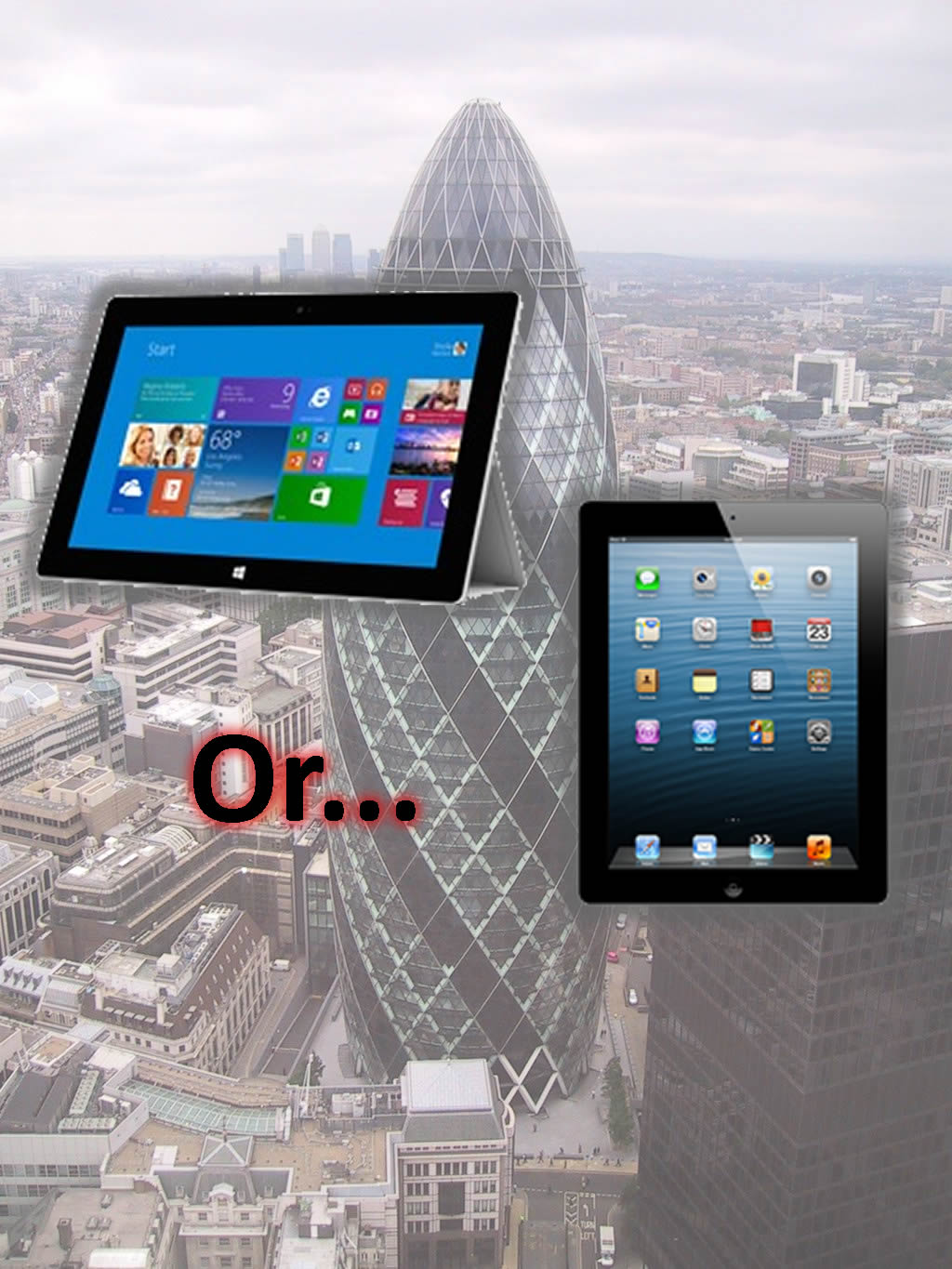Is productivity in the workplace possible with Surface 2 or iPad?


A year ago we saw a wobbly start for Surface RT with Microsoft trying to use krumping schoolkids and college students in their ads for the new tablets.
Over time, Microsoft has tried to tilt the marketing message to position Surface as a "productivity tablet". Now that Surface 2 is out, the "productivity tablet" message is coming across loud and clear.
But can what people use tablets at work for actually be described as "productive"?
Surface might be new, but the idea of using tablets in business is not. Although Microsoft would like us to believe that a tablet that doesn't run Office and doesn't have a good solution for a keyboard can't be used in business, the iPad has been used in business since its release in April 2010.
Mobile device management (MDM) allows enterprises to control which apps are available on both on BYOD and enterprise-supplied tablets. Some MDM vendors publish reports and surveys on what their customers' allow and disallow. This information can provide some insight into what apps people are typically using.
Back in June, my ZDNet colleague Adrian Kingsley-Hughes reported on a report put out by one such vendor. Fiberlink gave this list of iOS apps that are commonly whitelisted:
- iBooks
- Adobe Reader
- Citrix Receiver
- Numbers
- Dropbox
- Pages
- iTunes U
- Keynote
- WebEx
Along with those apps, you also need to add that apps that come with the device — namely web browsing, email, scheduling, and mapping. Combining all that gives the typical common uses of a tablet in the business environment as:
- Web browsing (in-built browser, plus the Google app)
- Scheduling
- Document review/basic production (reading PDF files, Numbers, Pages, Keynote, Dropbox)
- Remote access (Citrix Receiver)
- Education/training (iTunes U, iBooks)
- Real-time communications/conferencing (WebEx)
- Navigation/mapping ("where's that office for my meeting?!")
I doubt if you'd find anything surprising or controversial about that list. The business is also free to build its own apps, but that's rather outside of scope for this discussion. (It's also quite uncommon if we're thinking about tablet initiatives that are primarily BYOD.) What we're concentrating on is how someone can pick up a tablet, bring it into work, and use it without the IT department being particularly involved in the process.
Working
What we need to decide is what we mean by "productive". That's really where Microsoft is going, but interestingly that's not where Apple is going at all. Apple rarely talks about the iPad in enterprise environments, although the enterprise is important to them and they have programs to support people who want to do that. The iPad is now and always has been about an individual's entire "digital life".
Putting Surface 2 to work
As life is important to a lot of people, and work is part of life, it's into that slot that the iPad fits. It's not about people "having an iPad in order to be productive at work", it's more about "you have an iPad anyway, so why not use it when you're at work?" This is why the question as to what people use tablets for is so fuzzy. No one tells people to use iPads to do their job — people happen to end up using iPads because they offer some convenience.
That couldn't be more different to Microsoft's position. Microsoft is used to seeing PCs as devices that drive commercial efficiency. Microsoft expects people to use their tablets at work.
But, Surface 2 (and Surface Pro 2) will only be successful if it competes ably with Apple on the "digital life" bit. It has to be more than a different take on a laptop.
If we look at the list from Fiberlink, there's "good enough" coverage on those specific apps, or those in roughly the right space in Metro-style/Windows Store apps. Even if there are gaps, Microsoft has a strong enough set of enterprise ISVs that can produce those right apps. Plus it has Office, which knocks against Numbers, Pages, and Keynote. We don't need to worry about any of that.
What I worry about is this positioning as a "productivity tablet". It's a rare knowledge worker that sits down at an iPad to do productive work. What's more likely is that they'll have a quick look at their email on their iPad between meetings, or review a document on the train on the way home. It augments their work life and never becomes the focus.
Conclusion
In order for this whole proposition to work, Microsoft's customers have to follow the same path that Apple's customers have set. iPads are not in business because the IT department has put them there. iPads are in business because normal people happened to bring them in, in the same way that that same employee might bring in their favourite coffee mug.
Luckily, this isn't entirely "off piste" from what Microsoft is aiming at. The "productivity tablet" thing is a good hook in a complex market, but there's enough messages out there that Windows 8, Windows Phone, and Windows tablets is for normal people getting on with their normal lives for this not to be a complete disaster.
What do you think? Post a comment, or talk to me on Twitter: @mbrit.